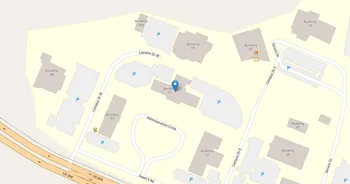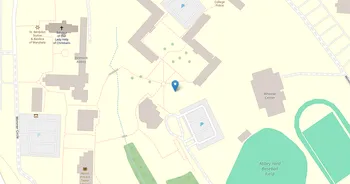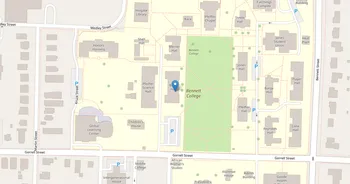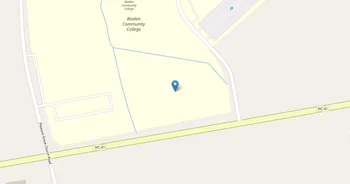Barton College : Overview, Courses, Scholarships & Rankings
About Barton College
In the heart of Wilson, a town known for whirligigs and an easy Southern welcome, Barton College pairs a liberal arts core with career focused practice. Known for strengths in health sciences, education, business, and the arts and sciences, it emphasizes faculty mentoring and real projects. Students find labs and studios, flexible classrooms, a busy library, and support from tutoring, counseling, and career advising. The college's Christian Church heritage shapes a service minded ethos.
Campus life feels close-knit and active. Clubs, leadership programs, service projects, and spirited Bulldogs athletics sit alongside intramurals, rec fields, and a solid fitness center. The culture skews friendly and community minded, with internships and placements tied to regional employers and nonprofits. And Wilson's walkable downtown and the Whirligig Park add color, with coffee spots and murals close by.
Key Institutional Details
Contact & Profile
Academic & Institutional
Academic Programs & Fields of Study
Barton College offers 26 degree programs across 18 major academic fields, graduating approximately 316 students annually. The most popular fields by graduate volume are Business (1 programs, 68 graduates), Kinesiology (2 programs, 66 graduates), Health (3 programs, 53 graduates), Biological Sciences (1 programs, 24 graduates) and Education (4 programs, 20 graduates). Explore program details, award levels, and graduate demographics below.
Business (1 programs, 68 graduates)
Business Administration, Marketing and Entrepreneurship
| Program Name | Graduates | Gender Distribution | Award Levels | CIP Code |
|---|---|---|---|---|
| Business Administration and Management | 68 |
|
Bachelor's
Master's
|
52.0201 |
Kinesiology (2 programs, 66 graduates)
Exercise Science, Sports Medicine and Physical Recreation
| Program Name | Graduates | Gender Distribution | Award Levels | CIP Code |
|---|---|---|---|---|
| Exercise Science and Kinesiology | 41 |
|
Bachelor's
Master's
|
31.0505 |
| Sport and Fitness Management | 25 |
|
Bachelor's
|
31.0504 |
Health (3 programs, 53 graduates)
Healthcare Professions, Medical Sciences and Clinical Practice
| Program Name | Graduates | Gender Distribution | Award Levels | CIP Code |
|---|---|---|---|---|
| Registered Nursing | 38 |
|
Bachelor's
|
51.3801 |
| Health Administration and Management | 9 |
|
Bachelor's
|
51.0701 |
| Public Health Education and Promotion | 6 |
|
Bachelor's
|
51.2207 |
Biological Sciences (1 programs, 24 graduates)
Life Sciences, Biotechnology and Biomedical Research
| Program Name | Graduates | Gender Distribution | Award Levels | CIP Code |
|---|---|---|---|---|
| Biology and Biological Sciences | 24 |
|
Bachelor's
|
26.0101 |
Education (4 programs, 20 graduates)
Educational Sciences, Teaching Methods and Pedagogy
| Program Name | Graduates | Gender Distribution | Award Levels | CIP Code |
|---|---|---|---|---|
| Elementary Education | 10 |
|
Bachelor's
|
13.1202 |
| Educational Leadership and Administration | 7 |
|
Master's
|
13.0401 |
| Special Education Teaching | 2 |
|
Bachelor's
|
13.1001 |
| Middle School Education and Teaching | 1 |
|
Bachelor's
|
13.1203 |
Security & Safety (1 programs, 15 graduates)
Emergency Management, Law Enforcement and Public Safety
| Program Name | Graduates | Gender Distribution | Award Levels | CIP Code |
|---|---|---|---|---|
| Criminal Justice and Safety Studies | 15 |
|
Bachelor's
Master's
|
43.0104 |
Psychology (1 programs, 14 graduates)
Psychological Sciences, Mental Health and Behavioral Studies
| Program Name | Graduates | Gender Distribution | Award Levels | CIP Code |
|---|---|---|---|---|
| General Psychology | 14 |
|
Bachelor's
|
42.0101 |
Public Services (1 programs, 14 graduates)
Public Administration, Social Work and Community Services
| Program Name | Graduates | Gender Distribution | Award Levels | CIP Code |
|---|---|---|---|---|
| Social Work | 14 |
|
Bachelor's
|
44.0701 |
Arts (3 programs, 10 graduates)
Fine Arts, Design Studies and Creative Performance
| Program Name | Graduates | Gender Distribution | Award Levels | CIP Code |
|---|---|---|---|---|
| Art Studies | 7 |
|
Bachelor's
|
50.0701 |
| Theatre Arts | 2 |
|
Bachelor's
|
50.0501 |
| Design and Visual Communications | 1 |
|
Bachelor's
|
50.0401 |
Communication (1 programs, 8 graduates)
Media Communications, Journalism and Public Relations
| Program Name | Graduates | Gender Distribution | Award Levels | CIP Code |
|---|---|---|---|---|
| Mass Communication and Media Studies | 8 |
|
Bachelor's
|
09.0102 |
Admission Requirements & Test Scores
Comprehensive overview of admission criteria, standardized test score ranges, and application requirements for prospective students at Barton College.
Application Requirements
Data based on IPEDS for 2022-2023 academic year. Test score ranges represent the middle 50% of admitted students (25th-75th percentile). Requirements may vary by program.
Tuition, Fees & Estimated Costs
Overview of tuition rates, housing, and other annual education expenses for undergraduate and graduate students
Financial Aid & Student Support
Summary of scholarships, grants, student loans, and financial aid statistics for undergraduate students
Student Success Metrics
Graduation rates and post-graduation earnings to help assess student outcomes and long-term value of education.
Loan Burden & Repayment Outcomes
Breakdown of loan repayment rates and student debt levels by income and dependency status.
Frequently Asked Questions
Find answers to the most common questions about Barton College
How much does it cost to attend Barton College?
The annual tuition at Barton College is $35,600 for in-state students. When including room and board, books, and other expenses, the total estimated cost is approximately $52,150 for in-state students. Additional costs include room and board $13,050 (on) / $14,510 (off) and books and supplies $650.
Data based on IPEDS program completions for 2022-2023 academic year. Tuition and cost estimates are approximate and may not include all fees, personal expenses, or transportation costs.
What academic programs and degree levels does Barton College offer?
Barton College offers 26 academic programs across 18 major fields of study, with available degree levels: Bachelor's, Master's.
Most popular program areas include:
- Business Administration, Marketing and Entrepreneurship (1 programs)
- Exercise Science, Sports Medicine and Physical Recreation (2 programs)
- Healthcare Professions, Medical Sciences and Clinical Practice (3 programs)
- Life Sciences, Biotechnology and Biomedical Research (1 programs)
- Educational Sciences, Teaching Methods and Pedagogy (4 programs)
Data based on IPEDS program completions for 2023-2024 academic year. Numbers reflect programs where students graduated, not all offered programs.
What is the acceptance rate for Barton College?
Barton College has an 95.9% acceptance rate and a 13.2% yield rate, making it moderately selective.
Admission statistics breakdown:
- Total applicants: 2,228
- Students admitted: 2,136
- Students enrolled: 281
Data based on IPEDS for 2022-2023 academic year. Admission statistics may vary by program and application cycle.
What financial aid and scholarships are available at Barton College?
Barton College provides financial aid to 25% of first-time, full-time students, with average grants of $24,334 and average loans of $7,261.
Average financial aid amounts by type:
- Pell grants: $5,357
- State/Local grants: $6,594
- Institutional grants: $18,552
- Federal loans: $5,360
The university supports 299 students with grants and 209 students with loans annually.
Data based on IPEDS for 2022-2023 academic year. Financial aid amounts and percentages may vary by program, enrollment status, and individual circumstances.
What is the average salary for Barton College graduates?
Barton College graduates earn a median salary of $40,785 after 6 years and $47,913 after 10 years.
The salary range 10 years after graduation spans from $35,224 (25th percentile) to $63,831 (75th percentile), with top earners reaching $64,400 (90th percentile).
Data based on IPEDS for 2022-2023 academic year. Salary data reflects graduates who received federal financial aid (approximately 60% of all graduates). Actual earnings may vary significantly based on program, location, and individual circumstances.
Related Universities




Found something useful? Help others discover it too! Share with friends, on social media, or save for later - every share helps someone find the information they need.